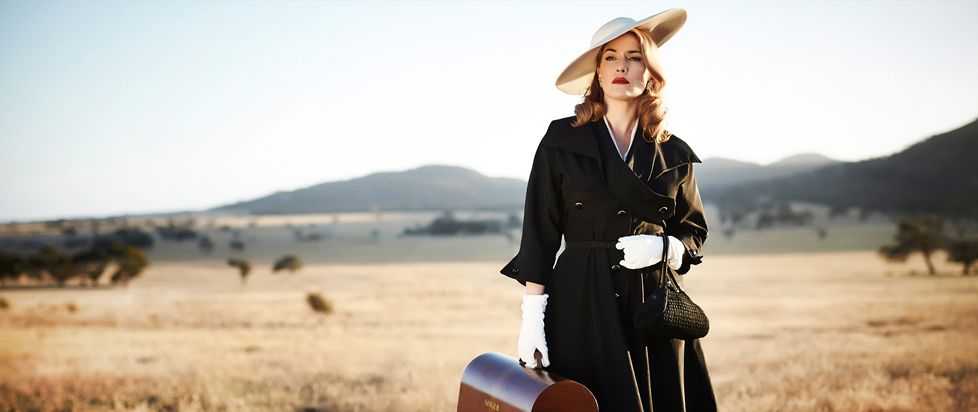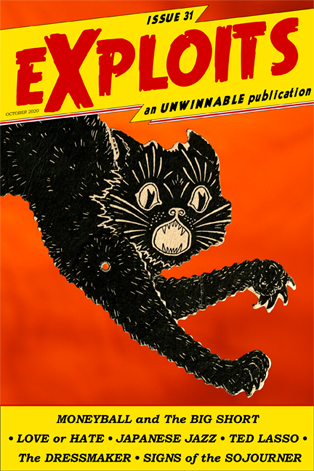
Sewing Machines at Dawn
 This is a reprint of the Movies section essay from Issue #31 of Exploits, our collaborative cultural diary in magazine form. If you like what you see, buy it now for $2, or subscribe to never miss an issue (note: Exploits is always free for subscribers of Unwinnable Monthly).
This is a reprint of the Movies section essay from Issue #31 of Exploits, our collaborative cultural diary in magazine form. If you like what you see, buy it now for $2, or subscribe to never miss an issue (note: Exploits is always free for subscribers of Unwinnable Monthly).
———
Dressed in black, the outsider steps into the dusty main street, glancing at the familiar general store, church, schoolhouse. She’s here to clean up this old town with her signature weapon – a sewing machine. Welcome to one of my favorite movies and my ultimate revenge film: The Dressmaker.
Kate Winslet stars in this dark tragicomedy set in the small town of Dungatar, in northern Victoria. Although pistols have been swapped for sewing machines and the setting has been moved from the Wild West to the Outback, this film plays like a proper old-fashioned Western. Director Joceyln Morehouse described it herself as “Clint Eastwood’s Unforgiven with a sewing machine”.
Morehouse frames Winslet’s Tilly, our anti-hero, as the classic outsider – rejected by the town and back after decades of absence. She wants to solve the mystery at the center of her own identity and exile. To do this, she uses her skills as the quickest sewer in the South to make clothes that reveal the townspeople’s beauty, trying to redeem both them and herself. She begins to repair her relationship with her mother – she finds the possibility of love and happiness with Teddy (played by Liam Hemsworth in frequent states of undress). But a well-made tragedy will always hit its high in the second act, followed by devastation and loss – which The Dressmaker does with heartbreaking effect.
[pullquote]In The Dressmaker the good lose everything and, in the end, we must be satisfied that the bad get exactly what they deserve.[/pullquote]
With love and beauty stripped away, Tilly has nothing left to lose. She sets out to expose the secret rotten core of the town. Tilly’s plucky ragtag team of allies are rejected for being unable, or unwilling, to conform. The supposedly upstanding townspeople’s crimes are papered over with a thin veneer of respectability – but Tilly and her misfits rip this away. The placid calm of middle-class, heteronormative morality is laid bare for the cruel and abusive hypocrisy that it is. Blood is spilled. Fire rages. An amateur dramatics competition is undermined.
This retribution is not without sacrifice and sorrow. To exact revenge, each of the outsiders must relinquish their tenuous foothold in Dungatar. In classic comedies the good get happy endings. In The Dressmaker the good lose everything and, in the end, we must be satisfied that the bad get exactly what they deserve.




